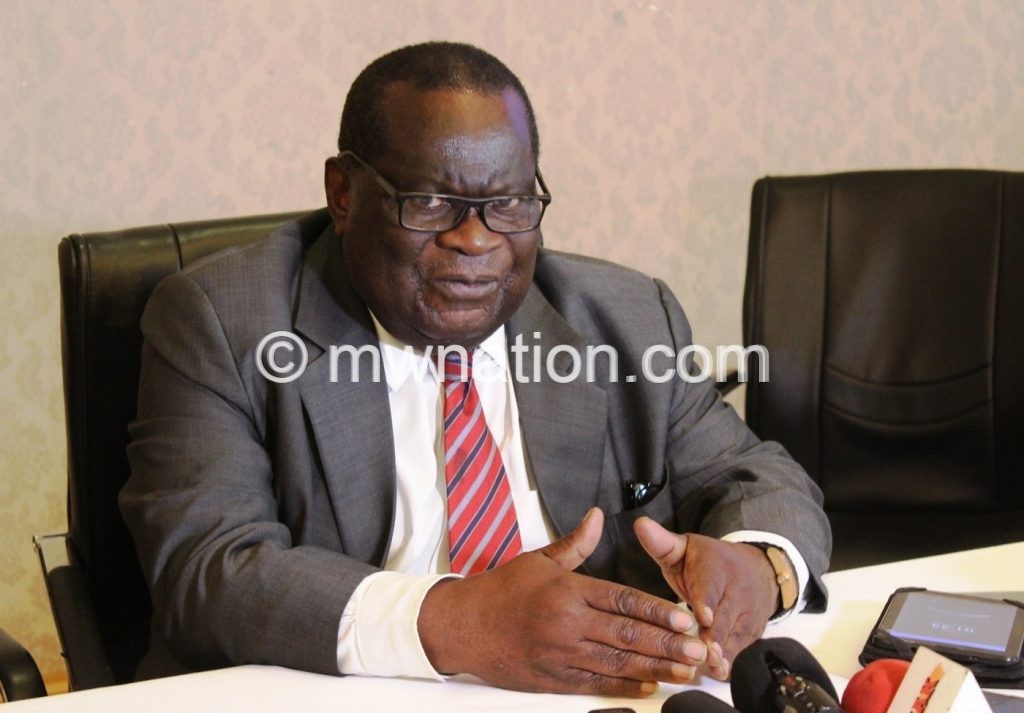Malawi shines on tax reforms
The 2018 Oxfam and Development Finance International Commitment to Reducing Inequality (CRI) Index has ranked Malawi among the best 10 countries in the world in designing progressive tax systems aimed at reducing inequalities.
The report shows that Australia, Denmark and South Africa occupy the first three positions in that order, with Malawi on position seven while near the bottom of the tax index are Bahrain and Vanuatu, which have no corporate or personal income tax.

The report is developed to monitor the extent to which governments are tackling the gap between the rich and poor through three policy areas, namely public spending, taxes and labour market.
On the overall, Malawi sits on position 87 on the CRI Index, but occupies position 108 on social spending in relation to health, education and social protection and 121 on labour rights and wages.
On progressive tax systems, the index looks at progress on the three main sources of tax in most countries based on personal income tax, corporate income tax and value added tax (VAT).
Overall, in terms of tax, the data reveals that most of the countries that are performing well are high-income countries under the Organisation for Economic Cooperation and Development (OECD).
Reads the report in part: “This largely reflects the more progressive impact of their tax systems on reducing inequality, they collect a higher share of tax revenue from progressive income taxes, reflecting their larger tax base of individuals and corporations with sufficient income to fall into the tax net.”
It says in general, the countries also perform well in collecting tax, though with notable exceptions such as the USA.
The top low-income country is Malawi, which has a relatively progressive personal income tax structure and is collecting a relatively high share of its potential tax.
The report shows that none of the 157 countries are performing well in terms of reducing inequality through its tax policy as the average score is only 0.6 out of one, indicating that countries could do more.
“Performance is particularly poor in terms of the impact of tax on inequality, where most countries still have what are likely to be regressive tax systems, with a high dependence on indirect taxes,” reads the report.
It says, however, that some countries have managed to reduce their Gini-coefficients using tax policy, even though they are not collecting all the taxes they should.
This shows that countries with progressive tax structures and make maximum efforts to collect tax can have a big impact on reducing inequality through their tax policies.
In May this year, Minister of Finance, Economic Planning and Development Goodall Gondwe announced that government would shift from reliance on revenue from taxation of labour and investment (factors of production) to consumption in the medium-term, as it continues to embark on expanding the tax base.
In a published 2018 Economic and Fiscal Policy Statement issued by the Ministry of Finance, Economic Planning and Development, fiscal authorities said over the medium-term, government will be committed to mplementing broad-based tax reforms to foster a simple, efficient, transparent and fair tax system.
Among other things, government said it intended to leverage the usage of information and communication technologies in tax administration and review some user fees and charges while improving efficiency.
“Tax policy initiatives will be guided by a shift in reliance on revenue from taxation of labour and investment [factors of production] to consumption,” reads the policy statement in part.
In what could be looked at as direct result of these reforms, Malawi Revenue Authority (MRA) recently told the Budget and Finance Committee of Parliament in Lilongwe that it has surpassed its revenue collection target for the months of July and August by K11 billion.
MRA said it expects a further improvement in the first quarter of the 2018/19 fiscal year which rolled out on July 1 largely due to administrative changes it has implemented.
The attained target was attributed to implementation of the integrated tax administration system, now known as Msonkho Online, to improve the administration and enforcement of domestic taxes.





